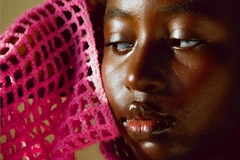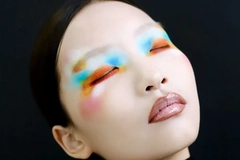Study suggests social media fuels summer skin insecurity

Research by Roseway Labs has revealed that 77% of UK adults with a current skin condition say social media trends — particularly Korean beauty “glass skin” — have intensified pressure to achieve flawless skin. This number rises to 85% among millennials and 93% among Gen Z, highlighting a generational spike in appearance-related stress as summer approaches.
The findings indicate a growing connection between aesthetic ideals and mental health, particularly during warmer months when skin is more exposed to external stressors.
“Millions of people across the UK are struggling daily with visible skin conditions that affect their confidence and quality of life. This is seen and experienced even more acutely by younger people, who are shaped by social media’s unrealistic skin ideals,” says Elizabeth Philp, CEO and founder of Roseway Labs.

“Our research shows this distress peaks in summer, when flare-ups from UV exposure, pollution, and allergens combine with the pressure of baring more skin.”
Unachievable ideals
England’s National Health Service estimates 35 million adults in the UK are affected by skin conditions each year. According to the research, around 38% of the survey respondents think about their skin often, and more than half (53%) say their skin condition makes them feel self-conscious.
Philp notes that social expectations have created a “flawless skin” standard unattainable for many. “Glass skin” promotes poreless, glass-like complexions and is popularized through platforms such as Instagram, TikTok, and YouTube.
.jpg) Philp notes that social expectations have created a “flawless skin” standard unattainable for many.The research spotlights Gen Z as the most digitally active age group, claiming their level of exposure makes the pressure to achieve flawless skin particularly intense.
Philp notes that social expectations have created a “flawless skin” standard unattainable for many.The research spotlights Gen Z as the most digitally active age group, claiming their level of exposure makes the pressure to achieve flawless skin particularly intense.
However, “glass skin” is often achieved with filters, lighting, cosmetic procedures, or highly specific skin care routines that are neither accessible nor practical for most people.
“Some of these trends may seem harmless or even beneficial [but] they often don’t have any real science behind them and could end up causing skin damage or other health issues,” Amit Om, FAAD board-certified dermatologist, previously told Personal Care Insights when discussing viral beauty trends.
“The glass skin look might not be realistic for everyone, and some people may run the risk of using too many products, which can lead to issues like clogged pores, irritation, and breakouts.”
Roseway Labs’ research highlights that not meeting these standards can lead to feelings of inadequacy, mainly when skin conditions such as acne, rosacea, or hyperpigmentation are largely absent from or alienated in mainstream beauty narratives.
This disconnect is contributing to growing skin-related anxiety. For younger users in particular, these pressures shape self-esteem and skin care behaviors.
The research finds that, in response, individuals are spending an average of £177.48 (US$236.34) annually on off-the-shelf products, despite continued flare-ups and limited long-term improvements.
Personalization to fill gaps.jpg) The study indicates a growing connection between aesthetic ideals and mental health.
The study indicates a growing connection between aesthetic ideals and mental health.
Roseway Labs is a pharmacy in the UK that specializes in compound skin care. Compound skin care refers to bespoke prescription treatments formulated according to an individual’s skin type, allergies, and condition history.
The pharmacy reports a 31% year-on-year increase in dermatological treatment inquiries, as patients look beyond over-the-counter options. However, the research shows that 79% of respondents said neither prescribed nor traditional treatments have worked for them.
Miriam Martinez Callejas, co-founder of Roseway Labs, says: “As a pharmacist, I see firsthand how limited options can leave patients feeling stuck — especially when standard prescriptions do not reflect their unique skin needs.”
“Compounded medication allows us to tailor treatments precisely, taking into account everything from allergies to formulation preferences. By working closely with GPs and dermatology specialists, we are helping bring personalized medicine into the mainstream — offering effective, targeted relief and helping people feel more comfortable in their skin, all year round,” she adds.
Roseway Labs claims compounded medicine is suitable for people with long-term or misdiagnosed skin conditions. By allowing for customised formulations, such as adjusting active ingredients or excluding irritants, these treatments aim to improve efficacy and reduce side effects compared to one-size-fits-all skin care products.













